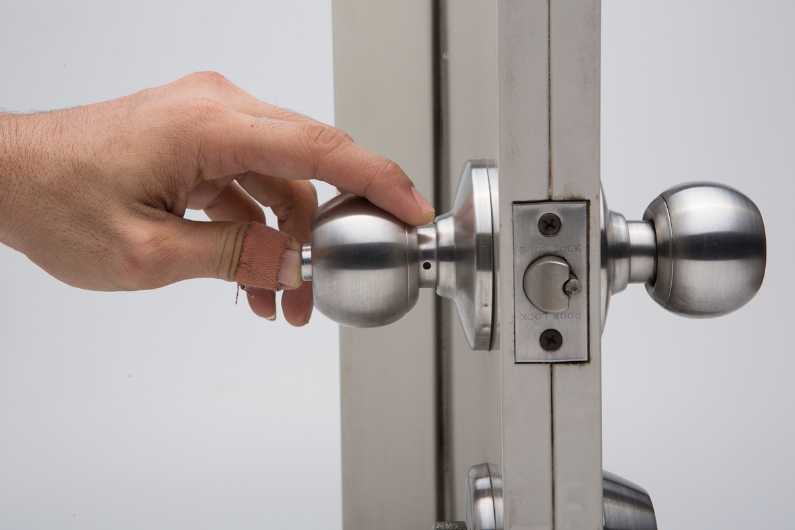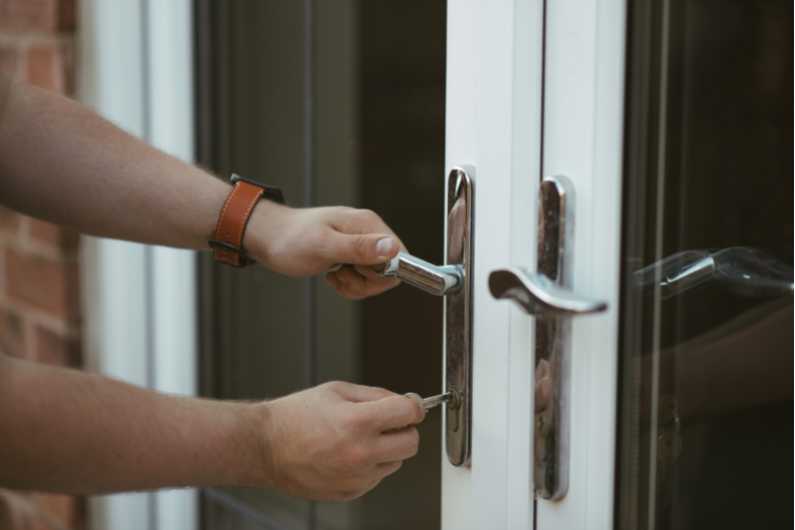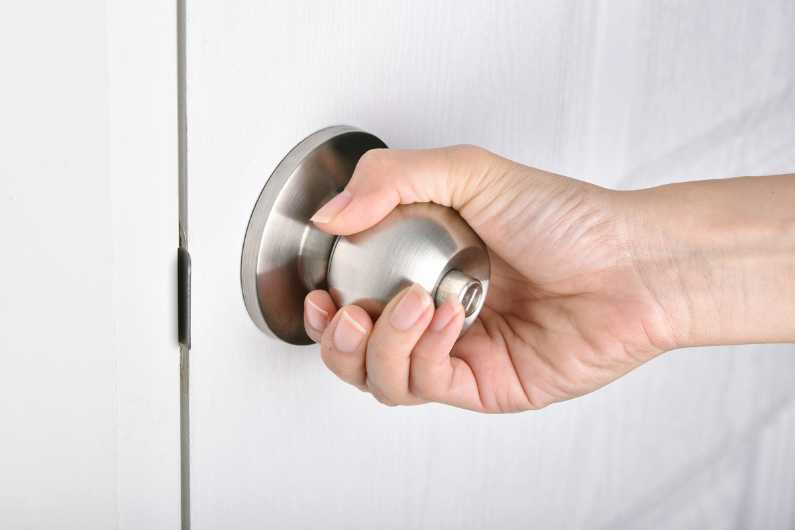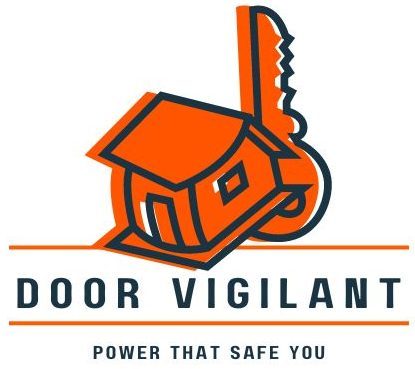With so many options for door hardware, it can be difficult to decide whether a door knob or lever is best for you. Both knobs and levers come in a variety of styles and designs, but the main difference between them lies in the ease of use.
Door levers are generally easier to use than door knobs and can provide greater accessibility benefits to those with limited mobility or disabilities.
In this blog post, we compare door knobs vs. levers so you can decide which option is right for your home. We’ll explore the various types of door knobs and levers available today as well as the advantages each offers in terms of design, functionality, and security.
Understanding Door Knobs And Levers
Door knobs and levers are two of the most common types of door hardware used in residential and commercial settings. While they may seem similar, they each have their own unique characteristics that set them apart.
Door Knobs
Door knobs, typically made of metal or ceramic, are circular-shaped with a protrusion that is turned or pushed to operate the lock mechanism. While they typically come in a traditional design, they can also be found in more unique styles such as decorative crystal, glass, and wood designs.
You’ll also find the door knobs in a variety of designs and styles to suit different tastes and needs. Some common types of door knobs include round knobs, privacy knobs, and passage knobs.

Types Of Door Knobs
Traditional Door Knobs:
These door knobs feature an old-fashioned style, with a round or oval shape, and are designed to be used with mortise locks. They also come in different finishes such as brass, bronze, or nickel. The knob typically features a metal plate and a keyhole for the lock mechanism.
Crystal Door Knobs:
Crystal door knobs provide a classic and elegant look for any home. These knobs are made of crystal glass, which is both durable and attractive. The glass can be clear or colored, and the knobs often feature intricate designs such as floral patterns, or jewels. Crystal door knobs are often used in more formal settings like entryways or dining rooms where they add a touch of class to the décor.
Contemporary Door Knobs:
Contemporary door knobs come in sleek and modern designs that fit into any contemporary design scheme. These door knobs usually have clean lines and simple shapes, usually featuring either chrome or stainless steel materials for an industrial look. Contemporary door knobs also offer advanced security features such as fingerprint recognition technology or even voice activation technology that make them perfect for high-tech homes.
Rustic Door Knobs:
For those who prefer a more rustic aesthetic in their home décor, rustic door knobs may be a perfect choice. These knobs offer an earthy look that is ideal for farmhouse-style homes and cabins in the woods. Rustic pieces often feature natural materials such as wood, stone, iron, cast iron, pewter, copper, bronze, or other metals to create a unique one-of-a-kind look that adds character to any room it’s used in.
Victorian Door Knob:
For those looking for something with more of a vintage feel but still want something modern to finish off their decorating project then Victorian door knob may be the answer! This style features many beautiful details such as intricate scroll designs engraved into the back plates plus striking colors like antique brass or oil-rubbed bronze finishes to complete the look of luxury that you’re after!
Door Levers
Door levers are similar to door knobs in that they also come in a variety of styles and designs. However, one of the biggest differences between door knobs and levers is that door levers are easier to use, especially for people with limited mobility or disabilities. Some common types of door levers include passage levers, privacy levers, and dummy levers.

Types Of Door Levers
Spring-Loaded Door Lever:
Spring-loaded door levers are designed for convenience and ease of use. This type of door lever is easy to open with a simple push or pull, making it an ideal choice for people who have limited mobility or strength. Spring-loaded levers are also available in different finishes and materials, allowing you to match the style with your home décor.
Privacy Door Lever:
Privacy door levers are often used in bedrooms and bathrooms as it provides privacy by having a lock on one side of the handle, meaning that only someone with a key can enter the room. These kinds of levers are available in different shapes, sizes, and finishes to suit any décor style.
Passage Door Lever:
The passage lever is another common type of door lever that does not require a key or code to operate it, unlike a privacy lever. This makes these handles suitable for areas like hallways and closets where no locking mechanism is necessary.
Passage levers usually come in simple designs with minimal ornamentation so that they do not become an eyesore in neutral-toned rooms such as hallways or foyers.
Dummy Door Lever:
Finally, there are dummy levers that provide an appearance similar to that offered by other types of levers but without having any functional use since they cannot be operated from either side of the door.
Dummy levers are often used as “decorative” handles on closet doors where no actual function is required from them aside from providing an aesthetic appeal.
They are also commonly used alongside other types of doorknobs or latches in order to provide symmetry between both sides of the door when viewed from outside looking into the room.
Factors To Consider When Choosing Door Hardware
When choosing between door knobs and levers, there are several factors to consider beyond personal preference. These include:
- Home Design and Style
- Functionality and Accessibility
- Cost
- Safety and Security
- Maintenance and Durability
Home Design And Style
Home design is an important factor in selecting door knobs or levers. Traditional homes often look best with a classic round knob while modern homes may opt for a more contemporary handle or lever. The style of the room should also be taken into account when making a choice as one style may not work harmoniously with the overall decor.
Functionality And Accessibility
Functionality is an additional factor to consider when choosing door hardware. Levers are generally easier to use than knobs, making them a great choice for those who suffer from mobility issues or have difficulty gripping items due to arthritis or other conditions. Door levers can also be easier for children to use as they don’t require grasping in order to open.
Cost
Cost is another factor to consider when choosing between knobs and levers. Generally, knobs tend to be less expensive than levers but some higher-end models may cost more than comparable levers due to their intricate designs.
Safety And Security
Safety and security should also be taken into consideration when selecting between door hardware pieces. Both offer adequate security however some styles are available with keyed locks that add extra protection against unwanted entry by providing additional layers of protection beyond simply locking the door itself.
Maintenance And Durability
Lastly, maintenance and durability should be considered when selecting door hardware pieces as both knobs and levers tend to wear down over time with frequent use. However, you will find some models that are designed for extended usage and will require less maintenance than others over time.

Additionally, certain materials will be more resistant to corrosion or damage from wear and tear than others. So it’s important to select a model that will meet your needs over time without requiring excessive upkeep or repair work over its lifetime of use.
Pros And Cons Of Door Knobs
Door knobs have their own set of advantages and disadvantages that are important to consider.
Advantages Of Door Knobs
Aesthetic: Door knobs provide a sense of aesthetic appeal as they come in various shapes, sizes, finishes, and styles that can complement the design of your home or office.
Affordable: Door knobs are an affordable option for adding decorative touches to a room since they are generally inexpensive compared to other door hardware options such as handles and levers.
Durable And Easy To Maintain: Door knobs are quite durable and easy to maintain since they require minimal upkeep while still looking attractive and presentable over time.
Simple To Install: Installing door knobs is relatively simple, making them quick and easy to replace if needed without the need for specialized tools or costly labor fees.
Convenient: For those who suffer from mobility issues, door knobs can be easier to use than levers or handles due to their smaller size which allows for better grip when opening doors.
Secure: In some cases, using a door knob can provide a higher level of security than other types of locks since it requires the user to physically manipulate the mechanism in order for the lock to be released rather than relying on an electronic keypad or card reader.
Disadvantages Of Door Knobs
Difficulty Of Use For Some Individuals: Depending on the size and shape of the knob, it can be difficult or impossible for those with limited dexterity or impaired vision to operate without assistance from another person.
Lack Of Safety And Security: While modern door knobs often feature enhanced security features such as deadbolts, these mechanisms may not provide enough protection against forced entry which could lead to theft or vandalism if an intruder were able to break through the lock with ease.
Some Knobs May Malfunction Over Time: Door knobs may become loose over time on some types of doors, such as those consisting of glass or thin wood panels, as a result of fluctuating interior tensions. As a result, they might not operate as intended while trying to open or close a door.
Maybe Rusting With Time: If regular maintenance is not performed on them, they may rust and lose their aesthetic appeal as well as their general functionality over time. Depending on where you live and the kinds of services that are offered locally for this purpose, this maintenance may cost more in terms of materials as well as labor.
Need Both Hands To Operate: Some people think it’s tougher to open or close a door when there’s only one doorknob, as opposed to two different handles, one on each side. Due to its small size, it also limits leverage. You will also need to put in a lot of effort upfront in order to move it into place firmly.

Pros And Cons Of Door Levers
Like door knobs, door levers also have their own set of advantages and disadvantages that are important to consider.
Advantages Of Door Levers
Ease Of Use: Door levers are easy to operate, even for those with reduced strength and mobility in their hands. Generally, they don’t require a lot of pressure or grip strength to open them. This makes them an ideal choice for people with limited hand dexterity. Also, because no key is needed to open the door, there is less risk of being locked out.
Improved Safety And Security: Door levers can also provide improved security and safety for your home or workplace. Because they are often constructed from durable materials such as brass, stainless steel, and solid wood that are more difficult to break into compared to doorknobs. Additionally, their unique design makes it more difficult for someone to pick the lock from outside the door.
Aesthetically Pleasing: In terms of aesthetics, many manufacturers offer a wide range of designs and styles. This feature allows you to complement your existing décor while providing a contemporary touch with minimal effort required on your part. This means you can keep your interior looking modern without having to replace all of your existing hardware.
Integrated Handle Design: Most door lever sets come with an integrated handle so that you don’t need another piece of equipment when trying to open the door from the inside or outside. This can save you money compared to purchasing separate handles and locksets separately.
Disadvantages Of Door Levers
Expensive: One potential disadvantage is the fact that they are frequently more expensive than doorknobs.Though it would be wise to spend a little extra if security and convenience were taken into account. Using door levers will also save you time as you won’t have to fiddle with keys or handles every time you enter or exit a building.
Limited Design options: Additionally, while there are plenty of different designs available on the market – some more elaborate than others – some customers might find that their options are limited compared to what’s available in traditional doorknob sets. Doorknobs typically feature a wide variety of intricate patterns and decorative elements that match any décor style imaginable.
Conclusion
In conclusion, choosing between door knobs and levers will ultimately depend on your individual needs and preferences. Consider factors such as home design and style, functionality and accessibility, cost, safety and security, and maintenance and durability. By understanding the pros and cons of each option, you’ll be able to make an informed decision that’s right for you.
